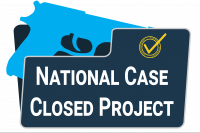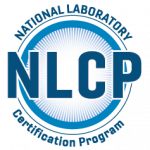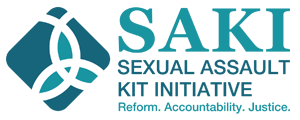
Criminal Justice Testing and Evaluation Consortium
The Criminal Justice Testing and Evaluation Consortium (CJTEC), operated by RTI International, is program funded by the National Institute of Justice (NIJ), the research, development, and evaluation agency of the U.S. Department of Justice. CJTEC staff uses research-based methodologies to enhance the capabilities of law enforcement, courts, and corrections agencies and to understand and test technologies and practices in a variety of NIJ’s research areas. As a consortium, CJTEC leverages expertise from varied criminal justice community stakeholders to understand and test technologies and practices in a variety of NIJ’s research areas.

Forensic Science Validation
Validation is a critical part of the scientific process for assessing whether a technique is technically sound and can be used in laboratories to produce robust and defensible analytical results. In the forensic science context, validation is mandated for laboratories accredited under the ISO/IEC 17025 standard, yet the standard tells laboratories that methods must be validated but does not provide a rigorous framework describing how a method or technique can or should be validated. There is a critical need in the forensic science community for a scientifically based framework for how laboratories should approach validation. Not only would this serve as a means for strengthening the robustness of validation studies designed to support the use of forensic science methods implemented in operational practice, but it would also serve to promote greater consistency in how validation is approached across different laboratories and disciplines throughout forensic science community. In support of this effort, RTI is working with NIST to provide a generalized framework that is applicable across multiple laboratories and disciplines to guide how laboratories should perform a scientifically defensible validation study.

Harnessing AI for Forensics
The project aims to create a framework of actionable guidelines for agency decision-makers to evaluate and administer AI effectively and responsibly in their agencies. Although AI holds promise for improving communication, increasing investigative capacity, and streamlining administrative tasks in forensic investigations, potential risks such as data privacy concerns, analysis errors, and bias must be carefully considered. Through workshop presentations, publications and other research dissemination, RTI and NIST seek to address these challenges and promote responsible AI deployment in forensic investigations.

Just Science Podcast
RTI International’s Center for Forensic Sciences presents Just Science, a podcast for justice professionals and anyone interested in learning more about forensic science, innovative technology, current research, and actionable strategies to improve the criminal justice system. This podcast discusses a wide range of topics, including leadership and efficiency in crime laboratories, sexual assault response, broader challenges faced by science and public security, and all forensic disciplines. All of our podcast episodes are available to the public at no cost.

National Case Closed Project
Funded by the U.S. Department of Justice’s Bureau of Justice Assistance, the National Case Closed Project is a new nationwide program designed to support law enforcement agencies in improving their violent crime clearance rates, with an emphasis on fatal and nonfatal shooting cases. The project team will partner with local law enforcement agencies to identify effective and sustainable practices related to agency operations, agency resources, investigator capabilities, and community relations. Technical assistance will be provided to partner agencies, and educational materials will be developed that law enforcement agencies across the nation can use to improve their violent crime clearance rates.

National Laboratory Certification Program
Since 1986, RTI International has supported the Department of Health and Human Services (HHS) by managing the National Laboratory Certification Program (NLCP). We conduct all aspects of the program, including the review and assessment of laboratory applications; inspections of applicant and certified laboratories; design, preparation, and distribution, scoring performance testing samples. The HHS-certified laboratories accredited under the NLCP are known as the “gold standard” in the drug testing industry. For more information on laboratory accreditation or becoming an NLCP inspector, please contact us at nlcp@rti.org or 919.541.7242.

Sexual Assault Kit Initiative Training and Technical Assistance
The Sexual Assault Kit Initiative Training and Technical Assistance (SAKI TTA) program supports coordinated teams of police officers, prosecutors, crime laboratory professionals, sexual assault nurse examiners (SANEs), forensic medical personnel, and victim services agency members. SAKI TTA provides evidence-based, victim-centered, and sustainable practices; these practices help with collecting and processing forensic evidence, investigating and prosecuting sexual assault cases, and supporting sexual assault survivors. SAKI TTA offers the support that jurisdictions need to navigate the unique challenges associated with cold case sexual assault.

